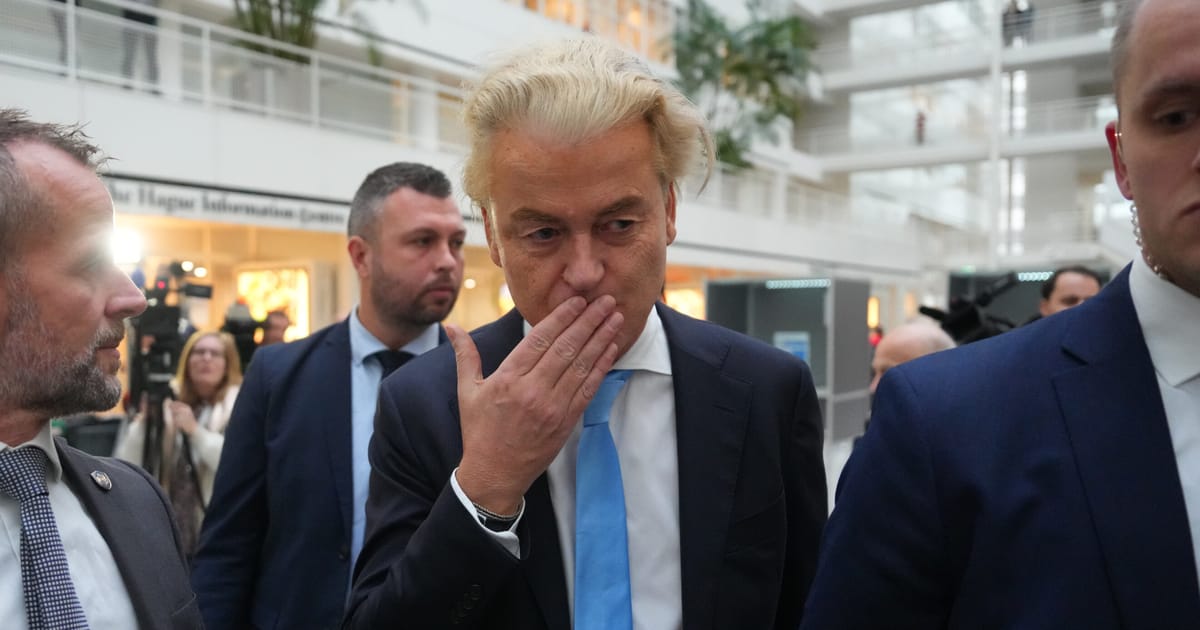The anti-Islam, euroskeptic radical Geert Wilders is projected to be the shock winner of the Dutch election.
In a dramatic result that will stun European politics, his Freedom Party (PVV) is set to win around 35 of the 150 seats in parliament — more than double the number it secured in the 2021 election, according to exit polls.
Frans Timmermans’ Labour-Green alliance is forecast to take second place, winning 25 seats — a big jump from its current 17. Dilan Yeşilgöz, outgoing premier Mark Rutte’s successor as head of the center-right VVD, suffered heavy losses and is on course to take 24 seats, 10 fewer than before, according to the updated exit poll by Ipsos for national broadcaster NOS.
A win for Wilders will put the Netherlands on track — potentially — for a dramatic shift in direction, after Rutte’s four consecutive centrist governments. The question now, though, is whether any other parties are willing to join Wilders to form a coalition. Despite emerging as the largest party, he will lack an overall majority in parliament.



A republic means a state with representative democracy. (Not strictly necessarily representative, but it’s hard to even imagine a State system with full democracy.)
Exactly, because a republic isn’t very democratic. What I’m saying is that representative democracy is barely democratic at all. Especially when using systems like majority rule. In most representative democracies today, the general public is barely if at all participating in the government of public affairs. I’m purposefully using the original meaning of the word democracy: government by the people or the people governing themselves. If the only way we can govern is by checking a box on a ballot twice a decade and that resulting in anywhere between 1 and 250 people having full authority over an entire country, I would not call that governing at all. And it shows that in most republics, policy enacted by their governments rarely represent what people actually want and care about.
There’s a few definitions but this is the first one in quite a few dictionaries and on Wiki
While Wikipedia mentions that power rests with the public (hence the name) instead of a monarch:
Those are two different things.